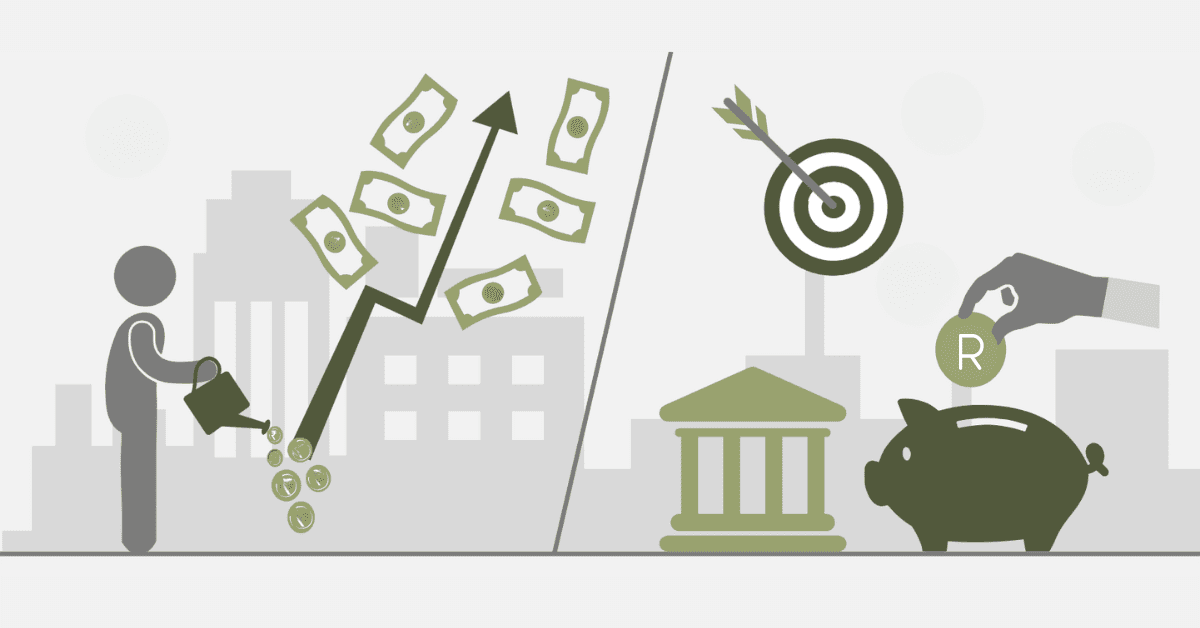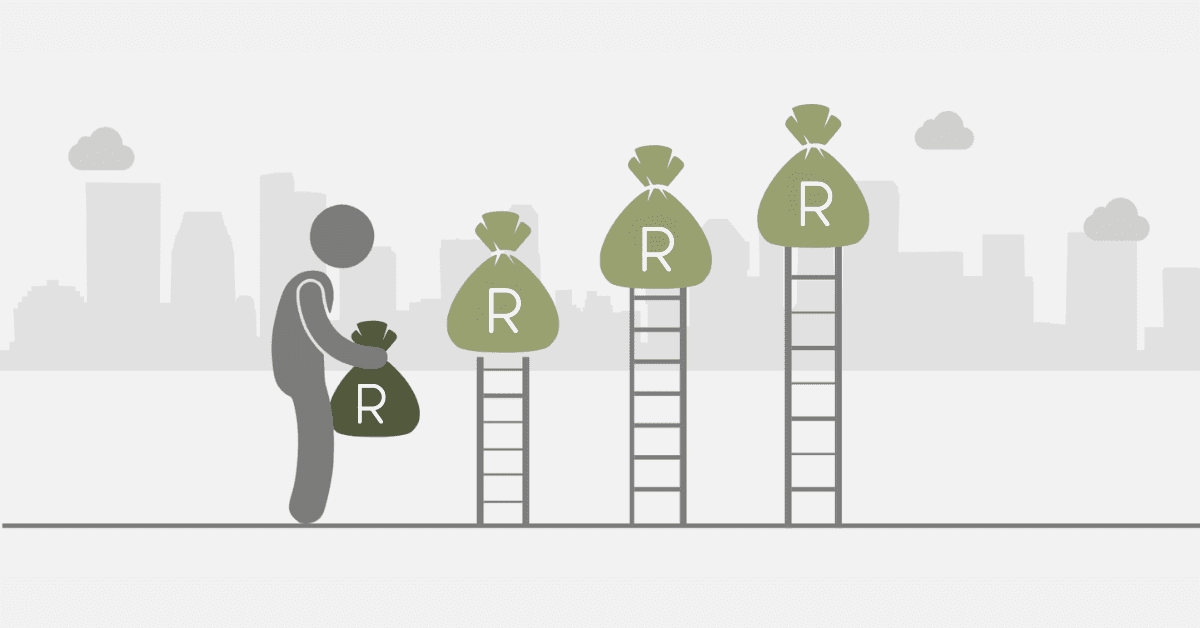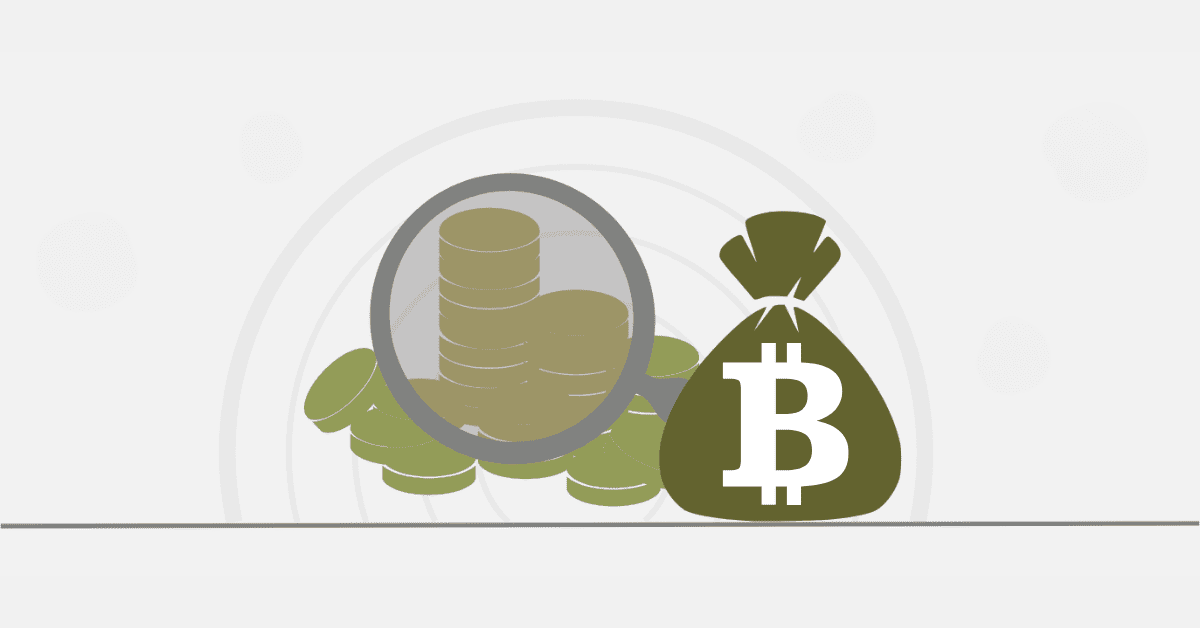Savings accounts are a typical, safe way of banking for people in South Africa. While these accounts offer security and liquidity, the value of coins kept in a bank may not grow as well as one would wish. Inflation, low interest rates, and some other factors reduce the purchasing power of your reserves over time. Therefore, knowing how savings work, the possible ways to lose value
Does Money in the Bank Lose Value?
Yes, money in any bank account can lose value, even though the amount in rands stays the same. The loss occurs when inflation exceeds the interest you obtain from your reserves. In SA, inflation is the percentage at which, over time, goods and services become more expensive. When it is inflated than the interest paid by your bank, it means the actual value of cash, or its purchasing power, decreases. In other words, your cash will earn less in the future than it does today, even though it will retain the exact figure.
What Can Cause a Savings Account to Lose Value Over Time?
The gradual attrition of value in savings accounts is encouraged by several factors, especially in South Africa. Some of these are as follows:
- Inflation: This element significantly reduces the actual value of money held in a savings account. SA has seen inflation go up and down over the past few years, sometimes higher than the interest percentages on savings accounts. If this factor increases, goods and services become more expensive; thus, your money has less buying power. If your savings account earns less interest than the inflation rate, the coins become worth less.
- Interest rates are often low: Banks offer standard savings accounts with relatively low interest-based rates. In South Africa, these have been below inflation, which means that your money earns interest but cannot keep up with the high cost of living. The noted low growth rate translates into a slow erosion of your wealth.
- Bank Fees/Charges: Many South African banks charge monthly fees for maintaining a savings account, with transaction fees when you take your money out in an ATM or transfer it to another account. And these all start to add up and further reduce the actual value of your savings. Where the interest earned is low and bank charges are high, the net return on your savings can become less- you’re effectively paying the bank to hold your money.
- Currency Depreciation: The rand may substantially go up and down in South Africa against major global currencies, especially the US dollar. Suppose you intend to use your savings for purchases abroad or for traveling. In that case, the value of your rands may lag behind the foreign currency you are interested in, further reducing your purchasing power. Currency depreciation might indirectly be caused by a loss in value, especially for such savers who want to retain their wealth for international expenditures.
- Savings carry limited prospects for investment: As much as it provides security and liquidity, its growth opportunities are limited. Unlike other investment channels like stocks or property, savings accounts do not enjoy the benefit of capital appreciation in most instances. This lack of growth might present a missed opportunity that would have otherwise been sought after in periods when inflation is high, and other asset classes seem positioned for and might realize better returns.
How Much Should I Keep in a Savings Account?
This largely depends on your monetary goals, emergency needs, and venturing strategy. Generally, one should keep just enough to meet immediate fiscal needs and emergencies, while surplus funds are better ventured into higher-yielding investment avenues.
Is It Bad to Keep All Your Money in a Savings Account?
Yes, there are disadvantages to keeping all your coins in that profile, primarily if you wish to grow your wealth. While savings accounts offer security and liquidity to your deposits, the growth opportunities are minimal compared to other available investment alternatives. That said, here are some reasons why you may not want to park your money in a savings account totally:
- Loss of Purchasing Power: As stated earlier, The most considerable risk is inflation. One loses purchasing power over time by keeping all funds in a savings account. If the inflation rate is invariably higher than the interest one accrues, actual values go lower year after year.
- Missed Opportunities for Investment: While savings accounts bear less risk, they barely let you grow. Keeping all your money in banks means losing an investment opportunity. For instance, investing your finances into the stock market, bonds, or even property yields better, especially if you put your money to work for an extended time. While such investments bear risks, they are diverse ways to build wealth more effectively than a savings account.
- Diversification is key. The financial planner would iterate here: “You cannot keep your money in one area, say, a savings account.” In South Africa, you have diverse alternatives to saving, which are equally important in the investment circles. Balancing risk with reward while unleashing growth potential that a mere savings account can’t provide might include equities, fixed income potential, and real estate.
- Long-term financial growth: Savings accounts are not the proper vehicle for long-term monetary growth, such as retirement or wealth building. They are ideal for short-term needs and emergencies but not long-term wealth accumulation. Investment in more growth-oriented assets, like stocks or mutual funds, is better suited for such goals.


